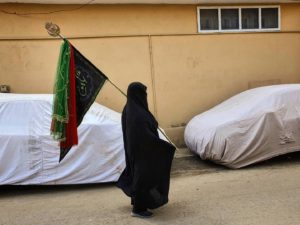Mahesh Rana

The Hindu community, specifically settled in Tharparkar (Sindh) has been in great stress and distress due to their inability to pay back loans on high-interest rates from microfinance institutions.
The microfinance sector is significant for its role as a provider of financial services to the underprivileged. The services are offered to those who lack access to conventional banking and other similar options. As a common practice different governmental bodies act in collaboration with the microfinance institutions. Pakistan also hosts various microfinance institutions but it comes with its own cost alongside some serious challenges, especially in the rural belts.
Unfortunately, the rural pockets in Pakistan are prone to political interference and exploitation of the working class so the challenges occurring in this regard are identified by Ravadar through conversations with a local family.
Microfinance institutions, providing loans to the poor individuals in rural areas, could not be repaid in time. These men come from impoverished families and are unable to pay back the loans in time.
In Tharparkar, a Hindu man shared his experience stating that due to a high-interest rate on the loans they couldn’t pay back, and had to face mountingly immense pressure from these institutions.
Harji Kolhi’s story
Harji Kolhi, a 40 years old shopkeeper said, “A few years ago, I requested a loan from a local microfinance institute in Nagarparkar. They approved my request and lent me a loan in November that year.” He continued, “I set up a general store and purchased other daily items needed for the venture. But unfortunately, when the drought-hit Tharparkar most of the residents in my locality migrated to Badin, Mirpurkhas, and other districts temporarily to make ends meet.”
The poor Kolhi did not see that coming, given the unpredictable nature of calamites. “These circumstances led to financial loss and I was unable to repay the bank in the agreed loan installments”, he admitted while speaking to Ravadar. The loan officers would visit Harji’s household and harass him for not paying the installments, these episodes were quite terrifying for the family.
The loss
Harji further added, “I asked my wife to give me her dowry items so we could repay the loan. But she refused and said that she had been saving and collecting these possessions since their daughter’s birth. She clearly wasn’t ready to sell those items due to the social and emotional value attached. “We got into an argument over this issue which led to her finally giving me the dowry items. I sold them in the market and came home with the money which I intended to use for repaying the loan.
But fate had other plans. When I returned home I found my wife dead; she had strangled herself with a rope, it was a suicide.” Haji recalled, with a strange sense of remorse.
He was a father to two young daughters and a son. “I lost my wife and sold the dowry items now I have no money to purchase dowry items for my daughters’ marriage,’’ he told our blogger, while his helplessness was quite palpable. “I do not know where to go and ask for justice”.
Despair, and deeper in distress
Advocate Heman Das, who was dealing with the case commented, “A voice was raised for this case but our legal team could not get the authorities to lodge an FIR.” Later when the court exerted some pressure the police registered an FIR against the loan officers but no one is arrested yet.’’ The advocate further added that “I appealed the court to arrest the manager of the institute and demanded a fair investigation”.
“But we are only given new dates for case hearings and nothing substantial or assuring has appeared thus far. Honestly, I do not have much hope for justice.’’, he mentioned this probably in the backdrop of an intersectional marginalization he has to face in Pakistan, by virtue of being a minority member from a scheduled caste entrenched in poverty.
The suicide cases saw a spike in numbers by the day. Most could be traced back to similar causes.
An increased degree of stress and psychological pressure due to the attitude of officials urging for a repayment paved the way for despair and distress in the Hindu community. Ideally, the government should devise ways to provide them with assistance in such matters and form policies that will help release the debt pressure.

